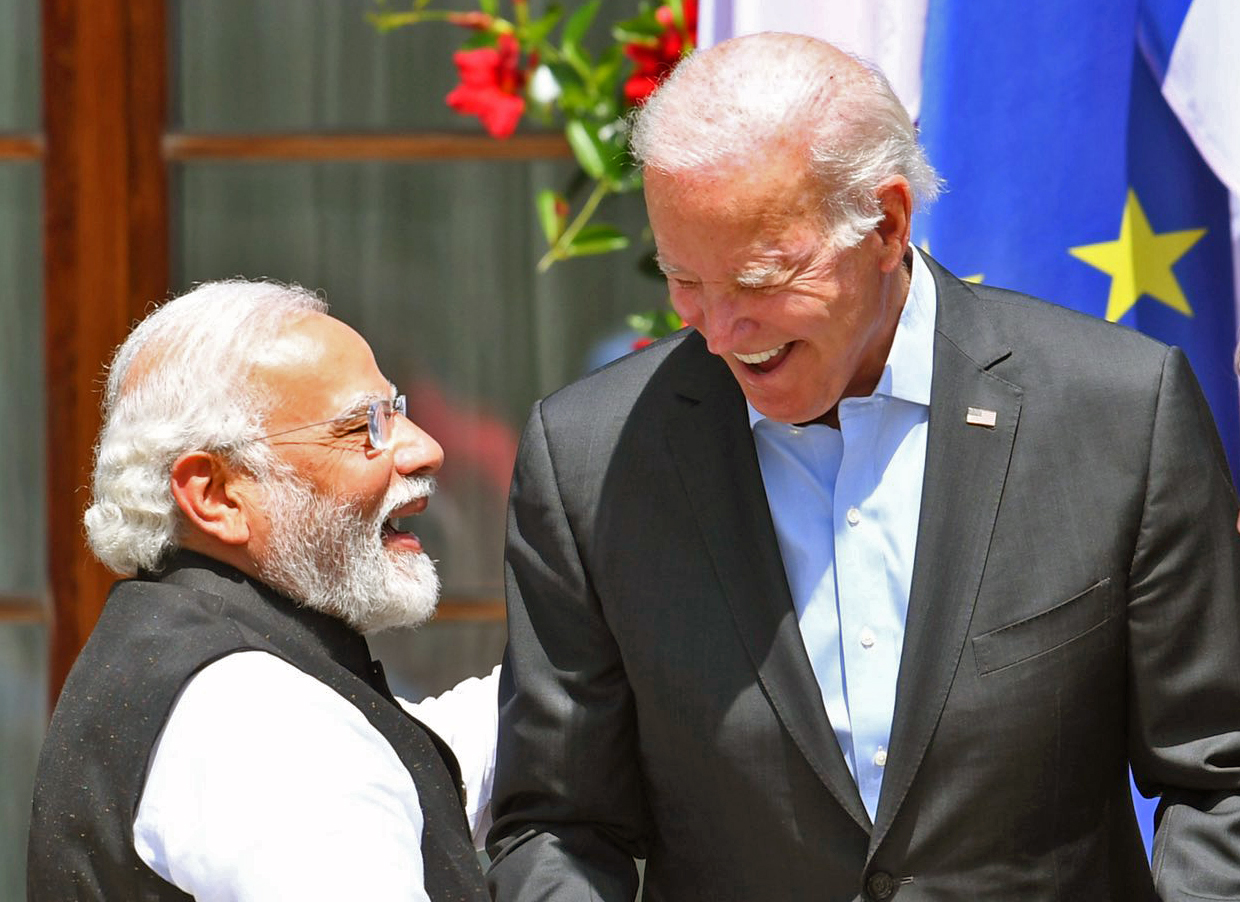Trouble is likely to arise for Chinese automobile companies who are doing business in India after US President Joe Biden on Friday directed the Department of Commerce to investigate the national security risks from vehicles that incorporate technology from China. As per the statement by the White House, the government was taking this step after it emerged that new vulnerabilities and threats could arise from these automobiles if a foreign government gained access to these vehicles’ systems or data.
The Biden administration said that these vehicles collect large amounts of sensitive data on their drivers and passengers; regularly use their cameras and sensors to record detailed information on US infrastructure; interact directly with critical infrastructure; and can be piloted or disabled remotely and these could be exploited in ways that threaten national security. Acting on the direction of Biden, the Department of Commerce issued a notice to investigate national security risks posed by connected vehicles from China.
As part of the investigation, the Commerce Department will gather information from the industry and the public on the nature of these risks, and take potential steps that could be taken to mitigate them. US officials said that this is the first action taken by the US Department of Commerce’s Bureau of Industry and Security (BIS) to protect domestic information and communications technology and services supply chains from national security threats emanating from China, thereby indicating that similar more steps were in the offing.
As per the notice issued by the Commerce Department, “the Department of Commerce’s Bureau of Industry and Security (BIS) has sought public comment on issues and questions related to transactions involving information and communications technology and services (ICTS) that are designed, developed, manufactured, or supplied by persons owned by, controlled by, or subject to the jurisdiction or direction of foreign countries or foreign non-government persons including China.”
“An automobile’s value is no longer determined only by the engine, steering system, and other traditional automotive parts. Increasingly, an automobile is a compilation of on-board computers; sensors; cameras; batteries; and various other categories of ICTS software or hardware tied together through automotive software systems. Over time, vehicle connections to the internet will evolve even further and new communication technology will advance vehicle capabilities.
These technological advances will continue to rely on significant data collection not only about the vehicle and its myriad components, but also the driver, the occupants, the vehicle’s surroundings, and nearby infrastructure. Moreover, CVs allow for information to be gathered and shared to address both individual and societal transportation needs. These technologies may expose the vehicles, and the sectors they support, to new cyber-enabled attack vectors and vulnerabilities, with the potential to create novel and potentially profound risks to national security and public safety.
Cyber enabled vulnerabilities can be exacerbated if the ICTS integral to CVs is designed, developed, manufactured, or supplied, by persons owned by, controlled by, or subject to the jurisdiction of China”, the notice reads. According to officials, the Biden administration is especially concerned about Chinese vehicles and components, which in order to escape scrutiny and regulations, are assembled in Mexico, under a new name to erase any links that will show that the products that are being used in the vehicle are Chinese.
It is pertinent to mention that many automobile companies, that are using products made in China, are selling their car under “make in India” or “not made in China” category by assembling their vehicles in India or any other third country. One of the most popular Chinese car manufacturers in India is MG Motor.
Its vehicles, including the Gloster are being used by many sitting Chief Ministers, and Union Ministers, apart from bureaucrats in sensitive posts. Another Chinese company that is trying to make inroads into India is the Great Wall Motors (GWM) through its brand Haval. Similarly, BYD Auto, or Build Your Dreams, another Chinese company is likely to come on the radar of relevant offices in Delhi after the announcement done by Biden. India and the US have been cooperating closely with each other in matters related to China.
This cooperation has become more vibrant after the May 2020 Galwan clash, during which India lost 20 of its Army officials. The Sunday Guardian had written last week about how the Narendra Modi government had cracked down on Chinese investments in India by banning 17 companies that were operating under different brand names in which the products were being brought from China but assembled in India to hide their place of origin. (India cracks down on Chinese tech, bans 17 companies, 25 February 2024). Other Chinese automobile companies that are active in India including the commercial vehicle segments and two-wheeler segment are Geely, whose popular product is named “Geometry”, Haima Motor Corporation, Beiqi Foton Motor Co. Ltd., commonly known as Foton Motor, which a subsidiary of BAIC Group (Beijing Automotive Industry Holding Co., Ltd.), one of China’s largest state-owned automotive enterprises, SAIC Maxus, also known as Maxus, Changan Automobiles, also known as Changan Motors, Zotye Auto and Lifan Motors.
Till now, none of them have come under the scrutiny of Government of India, however, with the strong statement and action by Washington, that is likely to change in the coming weeks.

